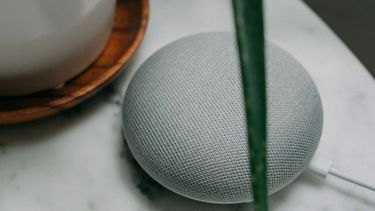With chatbot technology, robotics and speech recognition evolving rapidly, there’s a sci-fi fantasy paired with a commercial benefit of creating technology gendered as women that are driving new artistic, cultural, and industrial endeavours. Women are there, but not as makers. Instead, men are responsible for re-coding women's identity within technology – amplifying gendered issues from the past – and without consultation or inclusion of women's voices.
In collaboration with the University of Sheffield’s Information School, feminist activist network Women Reclaiming AI is creating a platform to reclaim female voices in AI. The team, including Dr Caitlin Bentley, Lecturer in AI-enabled Information Systems at the University of Sheffield, will design a collaborative manifesto on how all women in AI wish to be (or not be) represented in a technology-mediated present and future.
The manifesto aims to bring together women from across the globe to assert their own needs, wants and desires within technological development.
Dr Bentley is helping the team to create the manifesto and investigate how to scale its impact. She said, “we want to reclaim representation in the field and stop the perpetuation of myths and subservient gendered archetypes that are being reinforced through the technology.”
“Our lives are becoming dominated by smart machines, and every aspect of living is being transformed by artificial intelligence and machine learning. The teams making these world changing technologies, however, are non-diverse. It’s really important for us to drive forward that diversity and intersectionality when it comes to the future of technology.”
Dr Bentley added, “The way people access and use technology is driven by power dynamics centring the needs of specific demographics and experiences. The result of this is that working in AI feels out of reach for many people. Systemic gender, disability, and racial discrimination worsen employment inequality. We aim to shift this power through widening participation in discussion and technology development.”
The manifesto is part of a wider project by Birgitte Aga and Coral Manton called Women Reclaiming AI; a collaboratively coded AI voice assistant, made by a growing community of self identifying women (including trans, intersex and cis women) and all nonbinary, agender and gender variant people.
“We want to use the voice assistant to show how AI can be inclusive, if developed with those it represents. With a manifesto that lists our principles and purpose, with recommendations for change within technology, we hope we can support women to reclaim their voices by joining our movement. In the short-term, women will use the manifesto in their own activism via social media.”
But the manifesto is really the first step in our research to better understand what it takes to build inclusive AI technology that represents diverse users and their values. There remain many unanswered questions: How do we, as an activist network, take our voice assistant to other countries? Do we need multiple voice assistant versions for different communities of women? How will we decide how to share our voice assistant, and determine who can use it? The manifesto represents our commitments to each other to work these issues out, and to encourage others to get involved in these discussions.”
Dr Bentley and members of the Women Reclaiming AI project are hosting a virtual workshop to co-design the manifesto, on 18 March 2021 at 6pm GMT. The workshop is free and open to all self-identifying women and male allies.

